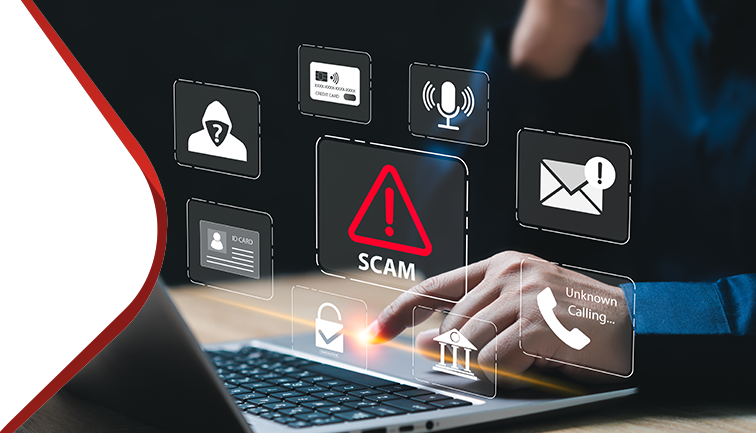

Bank Alfalah believes that protecting your information is a shared responsibility between the bank and its customers. While the bank takes strong measures to secure your financial data through advanced fraud detection, proactive risk management, and real-time security, it is equally important for customers to stay informed and vigilant.
Bank Alfalah wants to educate customers about emerging fraud trends, helping them recognize, prevent, and respond to potential threats. By working together, both the bank and its customers can ensure a safer banking experience, where each plays an active role in safeguarding personal and financial information.
|
|
|
|
|
|
|
|
|
|
|
|
Sharing is not always caring. It can put your personal and financial information at risk.
Use strong passwords and change them regularly.
Include uppercase & lowercase letters, numbers, and symbols (e.g., N@veEd!2024).
Never share your banking credentials, like CVV or expiry date.
Your CNIC number and date of birth can also be misused—keep them confidential.
Use a secure internet connection and avoid public Wi‑Fi for online banking.
Always log out when finished, especially on shared devices.
Regularly update software and apps to fix security vulnerabilities.
Download apps and updates only from trusted sources like the App Store or Google Play.
Look for “https://” and the padlock symbol in the browser’s address bar.
Double-check the domain name for misspellings (e.g., “bankalfalah.com” vs. “bankalflah.com”).
Never share your passwords, OTP, PIN, or account details over phone, text, or email.
Never share your CNIC number or date of birth on untrusted platforms—it could lead to identity theft.
Bank Alfalah never asks for sensitive information via call, SMS, or email.
If someone claims to be from your bank, hang up and call the bank’s official number to confirm.
Do not click on links or respond to SMS/emails asking for personal or banking details.
Always verify the source before clicking—scammers often disguise fake links to look real.
Report Immediately
Call: 111-225-111 or 111-225-224 (Bank Alfalah Helpline)
Email: contactus@bankalfalah.com
Quick Actions
Block your debit/credit card and change all passwords immediately.
Lodge a Complaint
If you believe you’ve been a victim of fraud or any suspicious activity, promptly lodge a complaint through one of the following official Bank Alfalah channels:
Call Center
Alfa App
Website
Customer Service Center
Branch Visit